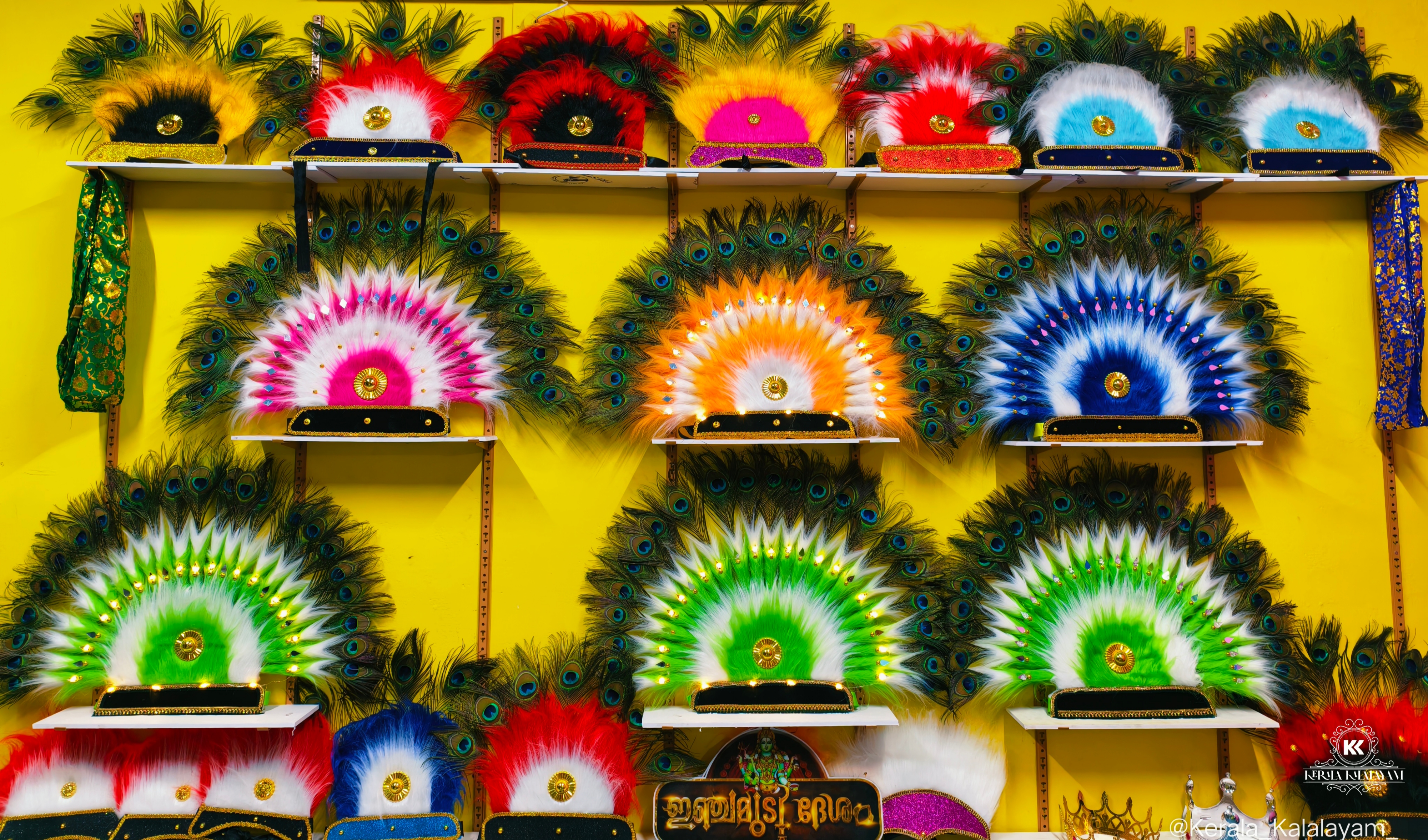


“With Kerala Kalalayam my programmes was colorful and joy. Thank you for Kerala Kalalayam”

“� With Kerala Kalalayam my programmes was colorful and joy. Thank you for Kerala Kalalayam�”


Panchavadyam is a traditional musical ensemble that originated in Kerala, a state in South India. The term "Panchavadyam" translates to "five instruments" in Malayalam, the language spoken in Kerala. It refers to the combination of five different percussion instruments that are played together in a synchronized manner.
The five instruments used in Panchavadyam are:

The nadhaswaram, also spelled as nadaswaram, is a traditional wind instrument from South India. It is considered one of the most ancient classical instruments and has a prominent role in various cultural and religious ceremonies.
The nadhaswaram consists of a long, cylindrical wooden body with a flaring bell-shaped end. It is typically made from a type of wood called aacha (Indian ebony) or a combination of several types of wood. The instrument has a double reed mouthpiece made of a type of cane, which is known as the "venu" or "mukhavenu."
When played, the musician blows air into the mouthpiece, causing the reeds to vibrate and produce sound. The nadhaswaram has a powerful and resonant tone, and it is capable of producing a wide range of pitches and melodies.
Traditionally, the nadhaswaram was primarily associated with auspicious occasions and temple rituals in South India, such as weddings, temple processions, and religious festivals. It is believed to bring blessings and create a sacred atmosphere. Over time, it has also become an important instrument in classical Carnatic music concerts.
The nadhaswaram is typically played in pairs, with one musician playing the main melody and another providing a drone accompaniment using a similar instrument called the "thavil." The combination of nadhaswaram and thavil creates a rich and vibrant sound that is characteristic of South Indian classical music.
The playing technique of the nadhaswaram requires considerable skill and breath control. The instrument is known for its ability to produce intricate melodies, fast-paced rhythmic patterns, and improvisations. It has a distinct and recognizable sound that has been cherished and preserved for centuries as an integral part of South Indian cultural heritage.

Chendamelam is a traditional percussion ensemble from Kerala, a state in South India. It is a rhythmic and vibrant performance that combines the sounds of the chenda, a cylindrical drum, and the melam, which refers to the musical accompaniment.
The chenda is the primary percussion instrument in Chendamelam. It is a cylindrical drum made of wood and is played with two sticks known as "rammers." The chenda has a powerful and resonant sound and is an integral part of Kerala's cultural and temple festivities.
The Chendamelam ensemble usually includes other accompanying instruments such as the ilathalam (cymbals) and kombu (brass horn). The ilathalam produces metallic clashing sounds, and the kombu adds melodic phrases and variations.
Chendamelam performances are often associated with temple festivals, processions, and other celebratory events in Kerala. The ensemble creates a captivating and energetic atmosphere, captivating the audience with its rhythmic patterns, powerful beats, and intricate synchronization.
The chenda player leads the ensemble, setting the tempo and rhythmic patterns. The performance typically starts with slow, steady beats and gradually builds up in complexity and speed. Chendamelam is known for its vibrant and dynamic nature, showcasing the skill and coordination of the musicians.
Chendamelam has its roots in Kerala's cultural traditions and is considered an integral part of the state's heritage. It continues to be performed in various contexts, including religious ceremonies, cultural festivals, and stage performances, preserving the rich musical heritage of Kerala.

A "bandset" typically refers to a group of musicians who come together to form a band. It is a general term used to describe a musical ensemble or group that plays various genres of music, such as pop, rock, jazz, or classical.
A bandset usually consists of a combination of different instruments and vocalists. The specific composition of a bandset can vary depending on the musical style and preferences of the band members. Some common instruments found in a bandset include:
The specific instruments and their combination depend on the band's musical style, preferences, and the specific requirements of the songs being performed.
Bandsets often perform live at concerts, music venues, weddings, parties, and other events. They may also create recordings and release albums. The size and scale of a bandset can range from a small group of musicians to a large ensemble, depending on the desired sound and the band's vision.
